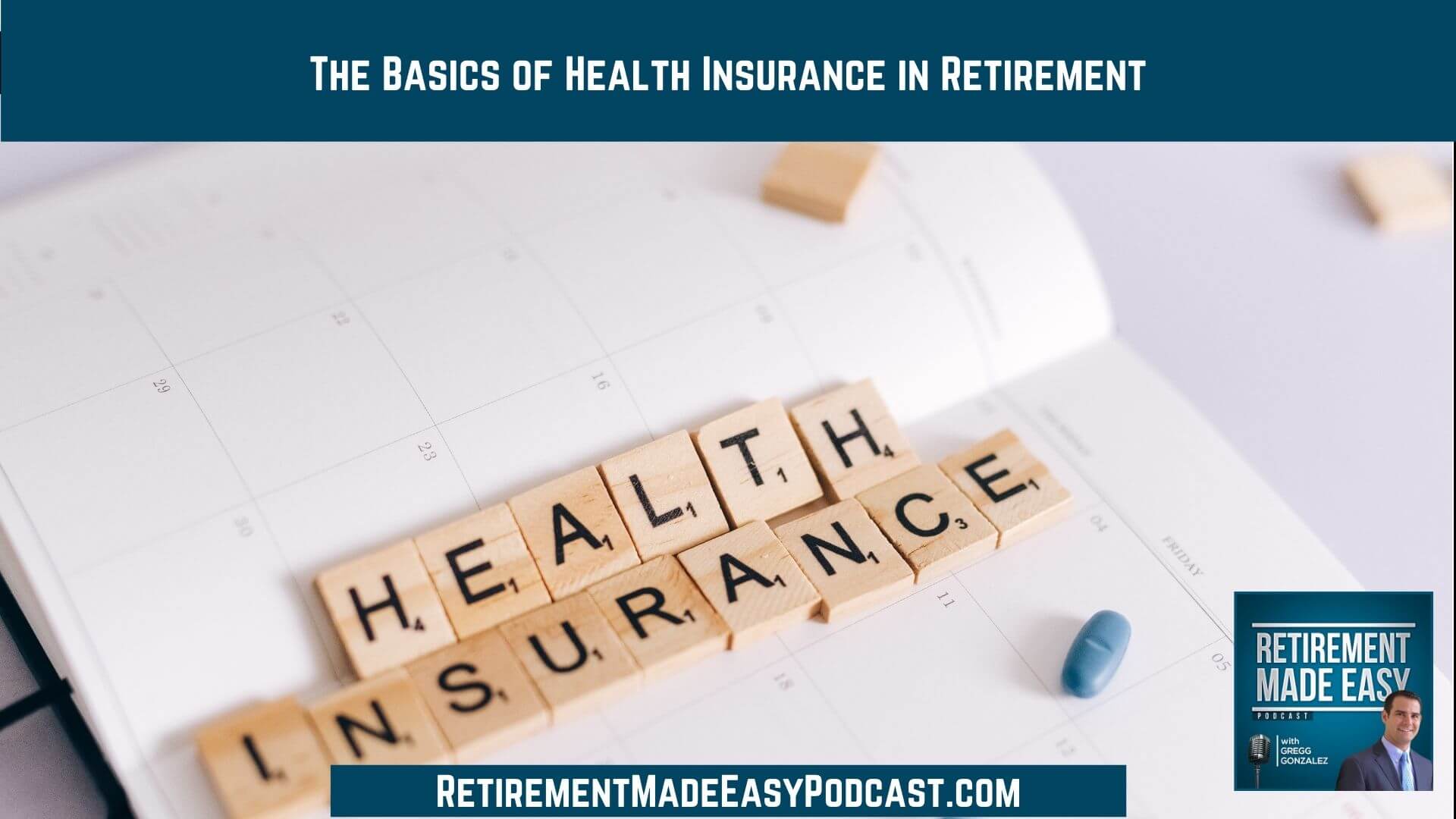
As you’re nearing retirement—or thinking about retiring early—you must think about your options for health insurance. If you’re retiring early, you have three options for healthcare. If you’re planning on waiting until age 65 to retire, you’ll qualify for Medicare. I cover the basics of all of these options in this episode of Retirement Made Easy!
You will want to hear this episode if you are interested in…
- [3:49] The surprising reason people wait to retire until 65
- [4:52] The three choices you have for healthcare to retire early
- [12:48] Learning the basics of Medicare
Why people wait to retire until 65
Why do so many people wait to retire until 65, when they could retire early? Because the cost of healthcare is so high. But if you retire at 65, you automatically qualify for Medicare. But some people still decide to retire at 63 ½. How do they do it? They jump on COBRA for 18 months to bridge the gap. If your spouse is on your health insurance and you retire, your spouse is entitled to 36 months of COBRA. There’s no denying that COBRA is very expensive, but it’s the same care that you’ve been used to. The only change is the price of the premium (because their employer is no longer covering part of it).
Two other health insurance options
There are two other options if you want to retire before 65: private health insurance or Obamacare. Private insurance would be a plan offered outside of the healthcare exchange through BCBS, for example. The premium will be very expensive for someone in their 60s. People are always surprised at the cost of the premium for good health insurance. You’re likely looking at $800+ a month. It’s like having another mortgage payment until Medicare kicks in.
The second option is through the healthcare exchange, i.e. Obamacare through the Affordable Care Act. The problem is that what’s “affordable” is very subjective. Obamacare is income-based, so a married couple with a household income under $68,960 annually qualifies for a subsidy on their premiums. If you get under certain income bands, you can qualify for a higher subsidy and lower health insurance premium. But you may likely have a huge deductible.
Some people work to keep their taxable income lower to game the system until they qualify for Medicare. Let’s say a couple has $2.5 million in their 401k and they have CDs, Roth IRAs, etc. They might leave the 401k alone and try to live off the CDs and Roth IRA withdrawals. So they make it look like they have very little reportable income and qualify for a larger subsidy on Obamacare. The system is obviously broken. Why do I think Obamacare is a trainwreck? Listen to hear my opinion.
The basics of Medicare
You may remember seeing something called a FICA tax on your paystubs. A FICA tax is 7.65% of your pay. Of that, 6.2% goes to Social Security and 1.45% pays into Medicare. Once you hit 65, you’re eligible for Medicare—healthcare for retired people.
Medicare consists of Part A, B, and D. Part A is hospital coverage, Part B covers most things like preventative care or other medically necessary services, and Part D covers prescription drugs. If your social security is $2,000 a month, a percentage comes out of that to pay for the premiums. It’s usually around $148.50 a month. So you are actually getting something like $1,851.50 a month from Social Security.
Medicare Part B covers 80% of your medical costs—and you’re on the hook for the other 20%. Many people pay out of pocket for that 20%. Others look at a supplement or advantage plan to cover the 20%. A supplement can cost somewhere between $200–$300 a month. An advantage plan can cost $0 a month but may have a large deductible (they also tend to be more complex).
What do you need to be aware of when you’re choosing a supplement? Listen to the whole episode to hear my tips!
Resources & People Mentioned
Connect With Gregg Gonzalez
- Email at: Gregg@RetireSTL.com
- Podcast: https://RetirementMadeEasyPodcast.com
- Website: https://StLouisFinancialAdvisor.com
- Follow Gregg on LinkedIn
- Follow Gregg on Facebook
- Follow Gregg on YouTube



